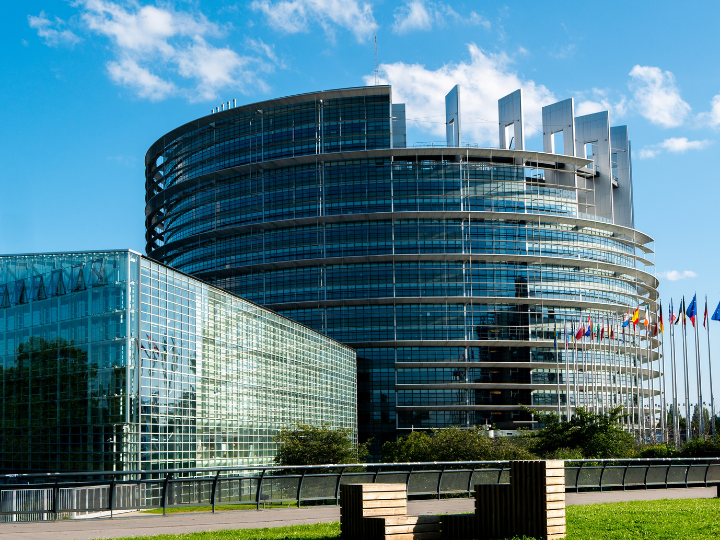by Oliver Noyan
While German Chancellor Olaf Scholz’s speech in the EU Parliament could have been one of the most memorable events of his time in office, what we got instead was a heated argument about the lack of ambition of the German government. It seems to be official now: the European election season has begun.
It is likely that Scholz pictured his appearance in the European Parliament yesterday very differently: frenetic applause and an excited crowd of lawmakers that congratulated him on his reform course.
He is exactly the reaction that his colleague Emmanuel Macron got when he held his first speech in Strasbourg in 2018.
But what Scholz got instead was a cascade of attacks and allegations from almost all political factions, save for his own, the European Socialists.
While he tried to frame the European Parliament as “a driving force and an ally” the responses weren’t quite as endearing.
“We don’t need any more keynote speeches. We now need the courage to lead Europe into the future,” the chief of the European People’s Party (EPP), Manfred Weber slammed Scholz.
The Greens, who are even in a coalition with Scholz’s SPD in Germany, found even clearer words.
“The image of you as a chancellor who is delivering has unfortunately faded in recent months,” Terry Reintke, Co-President of the European Greens, stated.
“I am here, chancellor because I want to appeal to you. I want to appeal to you because I want to see you fight for Europe. Because we need a German chancellor who thinks European and leads the way,” she added.
Even the response of Renew Europe, the party Scholz’s alleged friend, Macron, belongs to, wasn’t as friendly as many would have expected.
While Stephane Sejourne – former advisor to Macron and chief of the Renew Group – praised the German government, he did so because they “are policies that came from the FDP” – Scholz’s liberal coalition partner.
The Scholz speech itself didn’t really add much flavour to the debate on EU reform. If anything, it was a reiteration of already known positions.
However, it seems to have launched the start of the campaign for the European election that will likely take place exactly one year from now – in May 2024.
*first published in: Euractiv.com




 By: N. Peter Kramer
By: N. Peter Kramer

